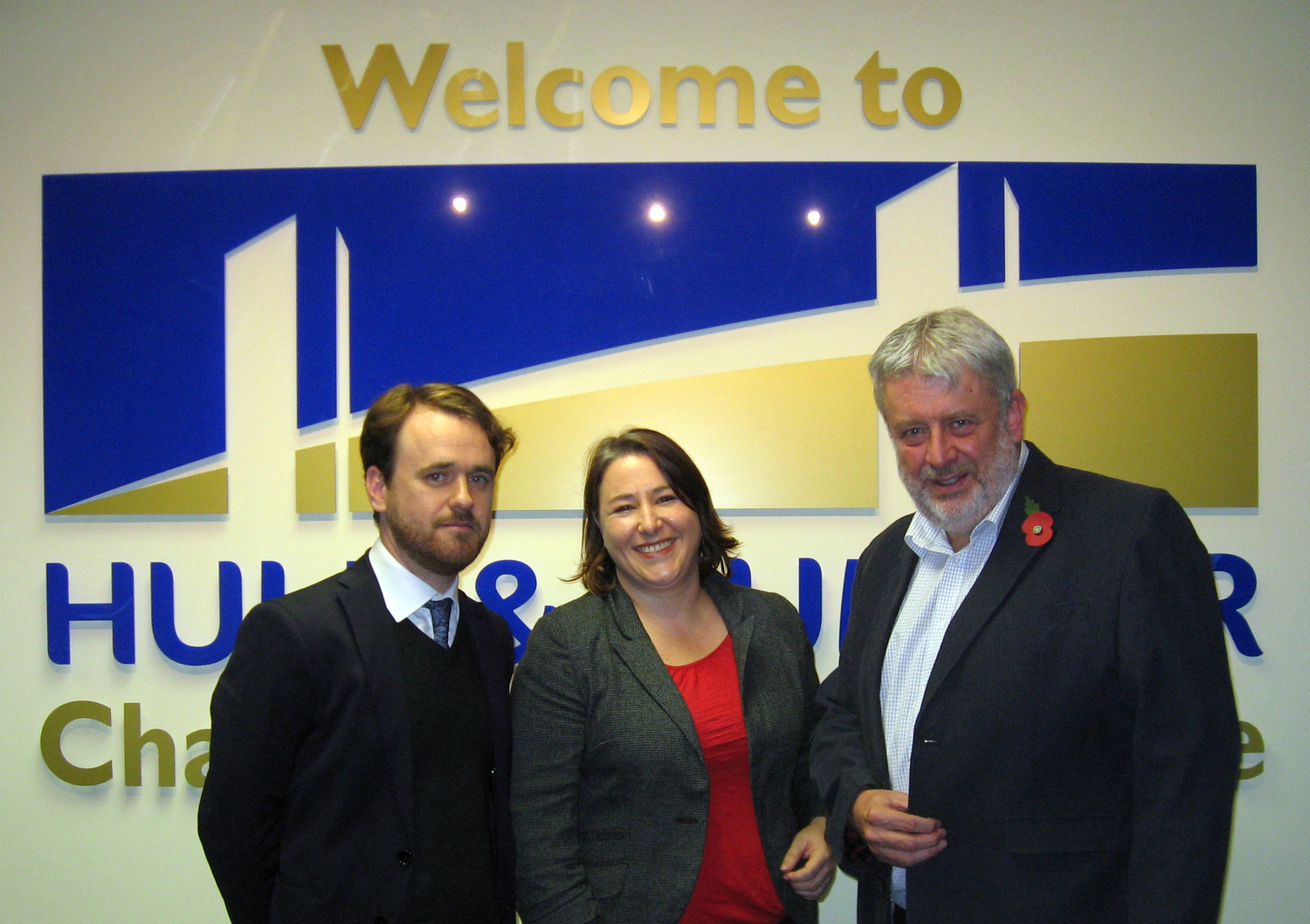Hull Area Council hears how HS2 is on track to benefit Northern cities

Stephen Mcfarlane and Charlotte Bowen are thanked for their presentation by Hull Area Council Chairman Phil Ascough (right).
THE UK’s northern cities are on track to benefit through better connections and freed-up capacity on the existing rail network, including the East Coast Main Line, which in turn will make the north more competitive and potentially improve services for both passengers and freight.
That was the message Stephen Mcfarlane, Head of Community & Stakeholder Engagement for the HS2 project, gave to the Hull & Humber Chamber of Commerce’s Hull Area Council. However, following a lively discussion, the message from the Chamber was that for HS2 to gain wider support in the Humber region, we would like to see a more inclusive scheme which includes the HS3 proposals linking cities across the Pennines, from Liverpool to Hull, as well as ensuring our existing rail services are protected and improved.
Mr Mcfarlane told the meeting that HS2 is the largest infrastructure project in Western Europe and is the first railway to be built north of London in 100 years. HS2 trains are expected to be running on the first section of track from London to the West Midlands by 2026, with completion of the full network expected by 2033.
“The benefits of HS2 will last way beyond our lifetimes and will still be influencing the way people live and travel up to 150 years in the future,” he said, insisting the project will bring real benefits to the Humber region.
Mr Mcfarlane said the new HS2 chairman, Sir David Higgins, has set out key objectives that the new railway should meet – primarily that it must be able to stand the test of time, it must be the right strategic answer, it must deliver for the UK as a whole and must be integrated into existing the transport network.
HS2 must be the catalyst for change and will be built to European specifications, Mr Mcfarlane said, which means the trains will consist of 18 cars and be 400m in length.
Charlotte Bowen, HS2’s Community and Stakeholder Engagement Advisor North West and Yorkshire, told the meeting that there will be great opportunities for businesses in the supply chain and to make sure there are suitably skilled and trained people to work on the project, a National College of High Speed Rail is being created in Birmingham and Doncaster, with ambassadors going into high schools to up-skill the workforce to be ready to start on the project.
Coun Martin Mancey, from Hull City Council, stressed the need for the East West connectivity to also be a priority and warned that both nationally and locally our region could potentially lose out on business opportunities.
He added that the timeframe of 15 to 20 years is also a real concern.
Mr Mcfarlane explained that HS3, or the East to West line, as he preferred to refer to it, would have to come after HS2 was completed as they don’t have the capacity to work on both projects at the same time.
Mr Mcfarlane said that the aim is to make the rail industry inspiring for future generations and encouraged people and businesses to find out more by using the following contact details:
- Business Opportunities section on www.hs2.org.uk;
- For any supplier queries, contact us at SCC@hs2.org.uk;
- Register your interest in HS2 at https://hs2.bravosolution.co.uk.



























